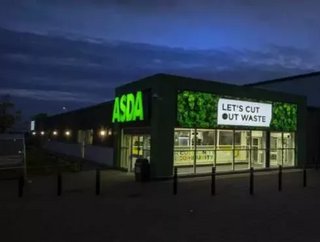Asda sets out sustainability ambitions with first ESG report

Asda has published its first-ever Environment, Social, and Governance (ESG) report, showing various commitments unveiled by the retailer in recent months as it works towards slashing the environmental impact of its operations.
With launching this report, Asda has said it is recognising the growing importance of ESG issues to customers, investors, suppliers, and the communities Asda serves. It also brings together existing and new commitments that build on Asda’s current Create Change for Better programme.
Research with more than 3,000 customers was carried out to help produce this report, it looked at which ESG related issue matters the most to them. The top three were affordable greener choices, reducing single-use plastics, and cutting food waste.
The ESG report sets out a number of Asda’s future commitments including:
- Making it affordable for customers to shop sustainably through the ‘Greener at Asda Price’ promise
- Becoming a net-zero carbon business by 2040 – a journey that includes reducing Green House Gas emissions (Scope 1 and 2) by 50% by 2025
- Removing 3bn pieces of plastic from products by 2025
- Ensuring the top 20 commodities such as cotton and cocoa are all sustainably sourced by 2025
- Cutting food waste by 20% by 2025 as part of the Courtauld commitment
- Delivering 120m meals by the end of this year through our Fight Hunger programme (2018-2021) to communities across the UK
- Increasing the proportion of own-brand products that are low in fat, sugar, and salt, to 60% by 2024
Roger Burnley, Asda CEO and President, said: “Despite the challenges of the pandemic, we have not lost sight of our wider ESG responsibilities and this report provides an update of where Asda is now on the issues that matter most to our colleagues, customers, and communities and importantly where we want to be in the future. It builds upon our existing create change for better commitments and the resilience we have shown during the last 12 months means we are well-positioned to help customers make greener, healthier, and responsible choices when they shop with us.”
More sustainable future
Sustainability is one of the most important issues right now with most supermarkets making various pledges towards climate change and becoming net-zero. Supermarkets are having to make significant adjustments to their supply chains, the products they supply, and how they interact with their consumers to have an impact.
Changes in the way consumers shop and the demand have drastically changed, especially over the past year. The commitments made by supermarkets could be vital in tackling climate change, but only time will tell if they really make an impact.






